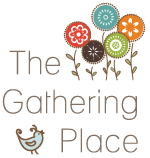Reserve Placenta Encapsulation
In Thailand, it is customary to salt the placenta and place it in an earthenware jar. In France, placenta has been used as a beauty treatment in skin creams. And in Cambodia, the placenta is traditionally wrapped in a banana leaf, nestled beside the newborn baby for 3 days, and then ritually buried. Cultures across the globe have different ways of using the placenta, the circular organ in your uterus which has nourished your baby through the umbilical cord during 9 months of pregnancy. The traditions vary, but there is one thing they share in common: the nutrient-rich placenta is never casually discarded.
Now, in the United States and Canada, more women are seeking to preserve their placentas through a method called placental encapsulation. There have been very few formal studies conducted on placental encapsulation, but most research that does exist based on maternal report evidences benefits of placental encapsulation. Some mothers report benefits including increased breastmilk supply, help with the emotional adjustment of postpartum, boosted iron levels, overall quicker postpartum recovery, less bleeding after birth and improved hormonal balance via the release of oxytocin.
Placental encapsulation involves the steaming and drying of the placenta which is then ground into a powdered form and poured into a vegetable capsule for consumption. Essentially, it’s your placenta in a pill! You simply swallow the placenta capsule as you would your morning vitamins. It's taken as a supplement in the weeks after childbirth. The average placenta is large enough to produce 60-125 capsules or a 30 to 60 day supply of placenta pills. When you reserve placenta encapsulation with our placenta encapsulation specialists, your placenta is picked up from your delivery hospital, birth center or home. Within 3-5 days after pick-up you will receive a bottle of placenta capsules at your home as well as guidelines for consumption. We offer both placenta encapsulation ($249) and tincture preparation ($69). Our placenta specialists are available to provide support and answers to your questions that may arise. If you have questions or concerns beyond that, please feel free to contact us. Contact us for more information about reserving encapsulation below.
